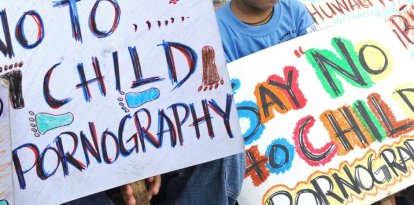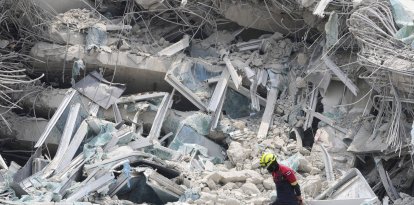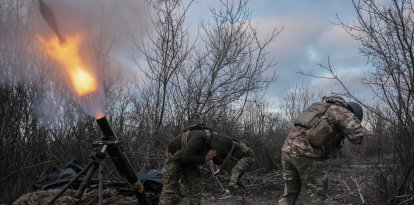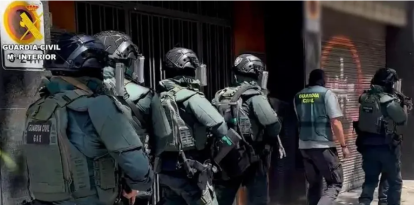“Bring them home”: A month kidnapped by Hamas
Fathers, mothers, students, babies. People who lived normal, full, free lives until one day, in an act of extreme injustice, they had to live the worst moment of their lives.
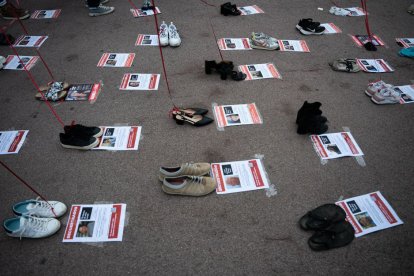
(Cordon Press)
Thirty-three children, between 10 and 20 people over 60 years old, disabled people and more than 200 adults, in general, are part of the 245 people kidnapped by Hamas since October 7, when the terrorist group launched a massive attack against Israel that has killed about 1,400 people.
According to the Israeli government, more than half of those kidnapped, some 138, have foreign passports from 40 different countries.
There are 54 Thais, 15 Argentines, 12 Germans, 12 Americans, six French and six Russians. There is also a Chinese hostage, another from Sri Lanka, two from Tanzania and two from the Philippines.
IDF spokesman Lieutenant Colonel Jonathan Conricus said: "These are numbers that were up until now unimaginable (…) This will shape the future of this war."
Now, these people, according to Hamas' spokespersons, are being held in resistance tunnels and "safe" places. A few were lucky and were freed, like Ori Megidish, an Israeli soldier who was rescued during ground operations in Gaza on October 29.
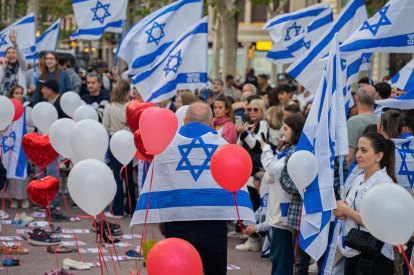
Hamas, kidnapped
Nurit Cooper and Yocheved Lifschitz were also released on Monday, October 24.
Lifschitz, an 84-year-old peace activist, made clear what her kidnapping was like in the first statement of someone held by Hamas to the media: "I went through hell."
Mrs. Lifschitz also continues to have a part of her life in hell because she was kidnapped along with her husband, Oded, from Kibbutz Nir Oz in the south of Israel on October 7.
Her husband, a renowned left-wing journalist in the area, has not yet been released.
Likewise, on Friday, October 20, two American hostages, a mother and daughter, also left their kidnappers behind and embraced freedom.
So far, Hamas has only released four people. Only one of those detained was rescued.
The conditions of the rest of the kidnapped people are unknown. Some have lost their lives, according to reports from Hamas, which blames – without evidence – Israeli retaliation. This is a statement that should be taken with a grain of salt considering the ongoing information war and also the terrorist groups' own threats.
For example, Palestinian Islamic Jihad, an Iranian-backed terrorist group based in Gaza, said it is holding more than 30 Israeli hostages, according to the terrorist group's leader, Ziyad Nakaleh. Hamas, for its part, threatened to kill a civilian hostage for every Israeli attack on civilians in their homes in Gaza "without warning."
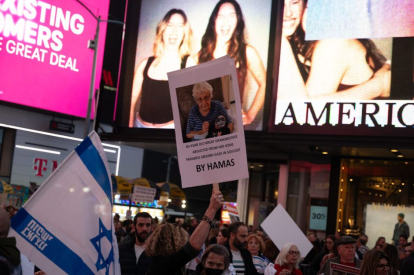
Israel, kidnapped, Gaza
Hamas even showed off the kidnapped people, using them as propaganda to try to stop Israel's attacks against the Gaza Strip. In a video, they showed Rimon Buchshtab Kirsht, 36, Daniele Alony Mevneh, 44, and Lena Trupanov, 50, advocating for a ceasefire and negotiations between the parties.
"When I saw Daniele on television, my heart almost stopped," said Ramos Alony, Daniel's father. "My wife and I were shocked, but we also felt relief — she was alive and we were seeing her."
Hamas' requests are absolutely pretentious. The terrorist group demanded that Israel release 6,000 Palestinians held as Israeli prisoners in exchange for the release of all hostages. Amid this situation, US and Israeli officials are trying to work with Qatar, a key intermediary, to achieve the release of the hostages through negotiations with Hamas, but progress is very slow.
There are many harrowing stories. Moving. In fact, all of them are.
Emily Hand, 8, from Kibbutz Be'eri, maintains a "missing" status, and authorities believe she was kidnapped. In the first instance, Tom Hand, Emily's father, had received the news that terrorists murdered his daughter.
There are cases completely opposite in age: Elma Avraham, 84, lived in the Nahal Oz kibbutz for almost five decades until her kidnapping. Now, her family is desperate for her to return home.
The stories of this girl and grandmother are transmitted to the rest of the hundreds of kidnapped people. Fathers, mothers, students, babies. People who lived normal, full, free lives until one day, in an act of extreme injustice, they had to live the worst moment of their lives.
All of them, now, are serving a month of detainment or captivity. And what the entire civilized world, who accompanies their families and friends, hopes is for them to return home.
RECOMMENDATION



